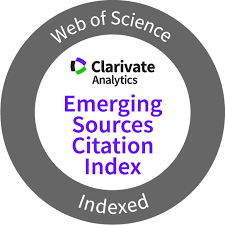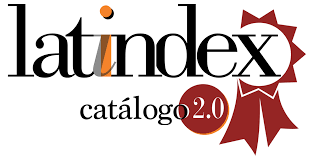Analysis of European climate action contrarian think tanks through the perceptions of politicians and their teams
DOI:
https://doi.org/10.5783/revrrpp.v14i27.856Keywords:
think tanks, policymaking, European Parliament, climate change, climate obstructiomismAbstract
There is a countermovement in motion that has obstructed the adoption of climate policies all over the world. In Europe, although some organizations have been identified, we know little about their influence. This research aims to analyse the role of climate action contrarian think tanks in the policymaking of the European Parliament (EP). To this end, a two-fold methodology is employed. Firstly, a survey of Members of the European Parliament (MEPs) was conducted in 2021, and this was followed by in-depth interviews with Accredited Parliamentary Assistants (APAs) related to climate issues. The results indicate almost no knowledge of these climate policy obstructionist think tanks among the surveyed MEPs and interviewed APAs. However, respondents believe that think tanks are generally used in policymaking. In fact, policymakers recognize the most prestigious European think tanks and often use them. Attributes such as visibility, good networking, quality content and transparency enable think tanks to have access to policymaking, although this would not seem to be the case for think tanks that oppose climate action in Europe. Results also describe policymakers' perceptions regarding the use of think tanks in general, which they see as useful tools in the elaboration of highly complex legislative dossiers in the EP. This article contributes to the line of research on the influence of interest groups.
This work was funded by the Spanish State Research Agency (AEI) and the European Regional Development Fund (ERDF) under Grant CSO2016-78421-R; and by the Spanish Ministry of Science, Innovation and Universities under Grant FPU18/04207.
Downloads
References
Abelson, D. E. (2018). Do Think Tanks Matter?: Assessing the Impact of Public Policy Institutes. McGill-Queen’s University Press.
Abelson, D., & Rastrick, C. (2021). Handbook on Think Tanks in Public Policy. Edward Elgar Publishing.
Almiron, N., Boykoff, M., Narberhaus, M., & Heras, F. (2020). Dominant counter-frames in influential climate contrarian European think tanks. Climatic Change, 162(4), 2003–2020. https://doi.org/10.1007/s10584-020-02820-4
Almiron, N., Khozyainova, N., & Freixes, L. (2020). “This nagging worry about the carbon dioxide issue”. Nuclear denial and the nuclear renaissance campaign. In Climate Change Denial and Public Relations (pp. 195–213). Routledge.
Almiron, N., & Xifra, J. (2020). Climate Change Denial and Public Relations. Strategic Communication and Interest Groups in Climate Inaction. In Climate Change Denial and Public Relations. Routledge.
Almiron, N., & Xifra, J. (2021). Rethinking think tanks. Experts vs. Impostors. Prensas de la Universidad de Zaragoza.
Burley, H., Dinan, W., Hoedeman, O., & Wesselius, E. (Eds.). (2010). Bursting the Brussels bubble. Alliance for Lobbying Transparency and Ethics Regulation in the EU (ALTER-EU).
Callejo Gallego, J., del Val Cid, C., Gutiérrez Brito, J., & Viedma Rojas, A. (2009). Introducción a las técnicas de investigación social. Centro de Estudios Ramón Areces.
Coan, T. G., Boussalis, C., Cook, J., & Nanko, M. O. (2021). Computer-assisted classification of contrarian claims about climate change. Scientific Reports, 11(1), 22320. https://doi.org/10.1038/s41598-021-01714-4
Forchtner, B., & Lubarda, B. (2022). Scepticisms and beyond? A comprehensive portrait of climate change communication by the far right in the European Parliament. Environmental Politics, 1–26. https://doi.org/10.1080/09644016.2022.2048556
Grasso, M. (2019). Oily politics: A critical assessment of the oil and gas industry’s contribution to climate change. Energy Research & Social Science, 50, 106–115. https://doi.org/10.1016/j.erss.2018.11.017
Kluger Dionigi, M. (2017). Lobbying in the European Parliament. Springer International Publishing.
McCright, A. M., & Dunlap, R. E. (2000). Challenging Global Warming as a Social Problem: An Analysis of the Conservative Movement’s Counter-Claims. Social Problems, 47(4), 499–522. https://doi.org/10.2307/3097132
McGann, J. G. (2007). Think tanks and Policy Advice in the United States. Routledge.
Mcgann, J. G. (2020). 2019 Global Go to Think Tank Index and Abridged Report. University of Pennsylvania.
Moreno, J. A., Kinn, M., & Narberhaus, M. (2022). A stronghold of climate change denialism in Germany: Case study of the output and press representation of the think tank EIKE. International Journal of Communication, 16, 267–288.
Moreno-Soldevila, M. (2022). Androcentrism and conservatism within climate obstructionism. The case of the think tank CLINTEL in The Netherlands. Ámbitos. Revista Internacional de Comunicación, 55, 41–57. https://doi.org/10.12795/Ambitos.2022.i55.03
Oreskes, N., & Conway, E. M. (2011). Merchants of doubt. Bloomsbury Publishing.
Rasmussen, M. K. (2012). Is the European Parliament still a policy champion for environmental interests? Interest Groups & Advocacy, 1(2), 239–259. https://doi.org/10.1057/iga.2012.12
Rogers, E. M., & Dearing, J. W. (1988). Agenda-Setting Research: Where Has It Been, Where Is It Going? In J. A. Anderson (Ed.), Communication Yearbook 11 (pp. 555–594). SAGE.
Stoddard, I., Anderson, K., Capstick, S., Carton, W., Depledge, J., Facer, K., Gough, C., Hache, F., Hoolohan, C., Hultman, M., Hällström, N., Kartha, S., Klinsky, S., Kuchler, M., Lövbrand, E., Nasiritousi, N., Newell, P., Peters, G. P., Sokona, Y., … Williams, M. (2021). Three Decades of Climate Mitigation: Why Haven’t We Bent the Global Emissions Curve? Annual Review of Environment and Resources, 46(1), 653–689. https://doi.org/10.1146/annurev-environ-012220-011104
Varoufakis, Y., & Adler, D. (2020, February 7). The EU’s green deal is a colossal exercise in greenwashing. The Guardian. https://www.theguardian.com/commentisfree/2020/feb/07/eu-green-deal-greenwash-ursula-von-der-leyen-climate
Weidenbaum, M. (2010). Measuring the Influence of Think Tanks. Society, 47(2), 134–137. https://doi.org/10.1007/s12115-009-9292-8
Wurzel, R. K. W., & Connelly, J. (Eds.). (2011). The European Union as a leader in international climate change politics. Routledge.
Downloads
Published
How to Cite
Issue
Section
License
Copyright (c) 2024 Jose A. Moreno

This work is licensed under a Creative Commons Attribution-NonCommercial-NoDerivatives 4.0 International License.
Authors publishing in this journal agree to the following terms:
a. Authors retain copyright and grant the journal the right to be the first publication of the work as licensed under a Creative Commons Attribution License that allows others to share the work with an acknowledgement of authorship of the work and initial publication in this journal.
b. Authors may separately enter into additional arrangements for non-exclusive distribution of the version of the work published in the journal (e.g., placing it in an institutional repository or publishing it in a book), with an acknowledgement of initial publication in this journal.
c. Authors are allowed and encouraged to disseminate their work electronically (e.g. in institutional repositories or on their own website) before and during the submission process, as it can lead to productive exchanges, as well as earlier and higher citation of published work (see The Effect of Open Access).





